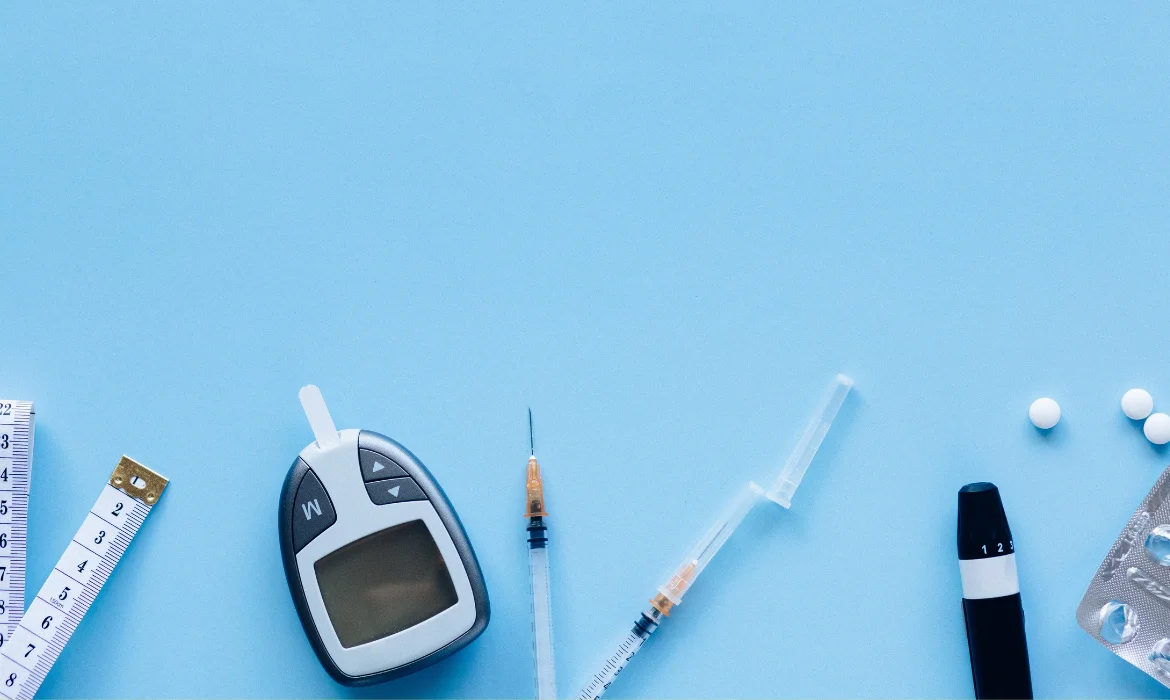What is Diabetes?
Diabetes is a chronic (long-lasting) health condition that affects how your body turns food into energy.
Most of the food we eat is broken down into sugar (which is also known as glucose) by our body and then it is released into our blood stream. When the blood sugar in our body goes up, it signals our pancreas to release insulin. Insulin acts like a key to let the blood sugar into our body’s cell for using as energy.
In case we are diabetic, our body is not able to use the insulin it makes as well as it should or our body does not make enough insulin. When there is not enough insulin, too much blood sugar stays in your blood stream.This results in serious health problems, such as Heart Disease, Vision Loss, and Kidney Disease etc.
Types of Diabetes.
There are three main types of diabetes: TYPE 1, TYPE 2, AND GESTATIONAL DIABETES.
Type 1 Diabetes
Get started with some simple steps. Type 1 diabetes is thought to be caused by an autoimmune reaction (the body attacks itself by mistake) that stops your body from making insulin. Approximately 5-10% of the people who have diabetes have type 1. Symptoms of type 1 diabetes often develop quickly. It’s usually diagnosed in children, teens, and young adults.
Type 2 Diabetes
With type 2 diabetes, your body doesn’t use insulin well and can’t keep blood sugar at normal levels. About 90-95% of people with diabetes have type 2. It develops over many years and is usually diagnosed in adults (but more and more in children, teens, and young adults). You may not notice any symptoms, so it’s important to get your blood sugar tested if you’re at risk .
Gestational Diabetes
Gestational diabetes develops in pregnant women who have never had diabetes. If you have gestational diabetes, your baby could be at higher risk for health problems. Gestational diabetes usually goes away after your baby is born but increases your risk for type 2 diabetes later in life. Your baby is more likely to have obesity as a child or teen, and more likely to develop type 2 diabetes later in life too.
Prediabetes
In prediabetes, blood sugar levels are higher than normal, but not high enough yet to be diagnosed as type 2 diabetes. Prediabetes raises your risk for type 2 diabetes, heart disease, and stroke. The good news is if you have prediabetes, then a good lifestyle program or Doctor consultation can help you take healthy steps to reverse it.
Diabetes Symptoms
If following symptoms are seen then it is advisable to consult a doctor
- Urinate (pee) a lot, often at night.
- Are very thirsty.
- Lose weight without trying.
- Are very hungry.
- Have blurry vision.
- Have numb or tingling hands or feet.
- Feel very tired.
- Have very dry skin.
- Have sores that heal slowly.
- Slow-healing sores.
- Frequent infections, such as gums or skin infections and vaginal infections.
Managing Diabetes
Stress is a part of life, but it can make managing diabetes harder, including managing your blood sugar levels and dealing with daily diabetes care. Regular physical activity, getting enough sleep, and relaxation exercises can help. Talk to your doctor and diabetes educator about these and other ways you can manage stress.
Healthy lifestyle habits are really important too:
- Making healthy food choice.
- Being physically active.
- Controlling your blood pressure.
- Controlling your Cholesterol.



